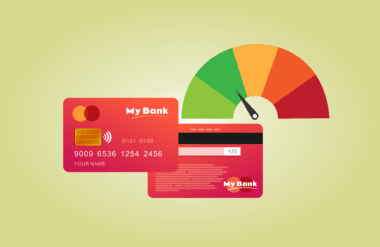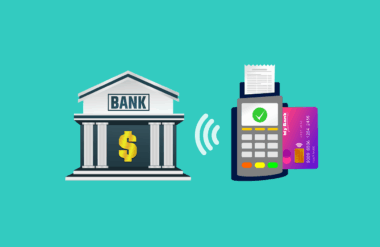Alternatives to Pay-for-Delete for Credit Report Improvement
Pay-for-delete practices can be tempting for those looking to improve their credit scores quickly. However, they may have long-term consequences for your credit history. Instead of opting for pay-for-delete offers, individuals may find more sustainable strategies for credit improvement. One effective method is to focus on understanding your credit report thoroughly. Obtaining a copy of your credit report allows you to identify errors. Once you’ve spotted inaccuracies, reach out to creditors or credit bureaus to dispute them. This process can lead to necessary corrections that will help enhance your overall credit score. Moreover, paying down existing debts is another viable strategy. Lowering your credit utilization ratio is beneficial, as it shows lenders that you are managing debt responsibly. Staying current with payments on time prevents negative entries that could further harm your score. Additionally, establishing a long-term credit history by responsibly using credit cards and loans can significantly boost your credit standing. Consistency and thoroughness in these efforts will yield a better credit profile over time.
Another alternative to pay-for-delete practices involves becoming an authorized user on a family member or friend’s credit card. This method can positively impact your credit history without any financial burden. If the primary user has a good payment history and low credit utilization, you can benefit by having their positive credit activity reported on your report. Remember that it’s crucial to choose the right person; ideally, they should be responsible regarding credit use. Additionally, credit counseling can be a valuable resource. Many organizations provide free or low-cost credit counseling services. These experts help individuals develop a plan for better credit management and offer strategies to improve credit scores based on specific situations. They may also assist in negotiating better terms with creditors. Regularly monitoring your credit score is another crucial strategy. Utilize free online tools or resources to track your progress regularly. Knowing your score guides you in making informed financial decisions. Furthermore, diversifying your credit mix, such as incorporating installment loans or revolving credit, may positively influence your credit score.
Moreover, creating a budget can lead to a healthier financial state, thereby indirectly improving your credit score. A well-planned budget enables individuals to allocate funds effectively toward debts, ensuring timely payments and reducing overall debt levels. This discipline reflects positively in credit reports. Setting aside funds for emergencies can also help avoid taking on additional debt, which negatively impacts credit scores. In addition to budgeting, utilizing secured credit cards presents a viable alternative for establishing or rebuilding credit. These cards require a cash deposit that serves as your credit limit. Responsible use and timely payments on secured credit cards can result in positive reporting to credit bureaus, promoting an upward trend in your credit scores. Over time, individuals may qualify for unsecured credit cards with better terms and benefits. Taking advantage of credit-builder loans is another alternative. These loans are designed specifically to help individuals improve their credit by reporting payment history to credit bureaus. Payments made towards these loans contribute positively to credit scores and assist in developing stronger financial behaviors.
The Importance of Payment History
Understanding the significance of payment history is critical when focusing on credit improvement. Payment history constitutes around 35% of your credit score, making it essential to maintain a strong record of on-time payments. One external approach to this is enrolling in automatic payment options, which can help ensure you never miss a due date, thus protecting your credit standing. Even when faced with financial struggles, communicating with creditors may help in developing alternative payment plans, safeguarding your credit report from negative entries. Another proactive method includes utilizing financial apps that send reminders about upcoming due dates. Some of these apps even help set savings plans for monthly payments. Staying aware of your financial responsibilities positively impacts overall credit health. Furthermore, exploring options for credit education will equip you with tools and knowledge necessary for minimizing future risks. Numerous resources, such as online courses and workshops, focus on credit management. Educated consumers tend to make informed decisions that benefit their credit scores in the long run, ultimately creating a more financially secure future.
Furthermore, considering debt consolidation can also be an effective means of enhancing credit scores. While it does not necessarily involve pay-for-delete options, consolidating high-interest debts into a single, lower-interest loan eases the burden of multiple payments. It’s vital, however, to do the research and ensure this strategy aligns with your financial situation. Available methods for debt consolidation include personal loans or balance transfer credit cards that offer promotional rates, allowing you to pay your debt down more quickly. Remember, the key to benefiting from consolidation is to maintain a consistent payment schedule and avoid accumulating new debt during this process. Additionally, understanding how long negative marks remain on credit reports can provide clarity for financial planning. Though they can affect scores for many years, knowing when they will fall off allows consumers to focus on healthier credit-building practices without getting discouraged by past mistakes. Having financial literacy empowers individuals to navigate credit complexities and adopt proactive measures. This understanding ultimately can lead to improved financial health and overall economic stability.
Networking with Financial Experts
Engaging with financial experts can also offer alternatives to pay-for-delete practices. Financial advisors or certified credit counselors provide personalized advice tailored to specific credit situations. They can identify areas for improvement and suggest customized strategies for better credit management. It is beneficial to choose a reputable advisor, so consumers should research potential candidates thoroughly or request recommendations from trusted acquaintances. Attending workshops or seminars focused on credit and finance is another effective way to gain knowledge. These events often discuss practical tactics for improving credit and offer real-life applications based on attendee questions. Networking with others who are passionate about personal finance can also provide community support and accountability. Being part of discussions relating to credit improvement not only motivates but can inspire new ideas and strategies that may not have been previously considered. Creating a support system with friends or family members also helps individuals stay committed to their financial goals. Sharing progress and setbacks encourages open conversations about finances, ultimately fostering stronger money management skills and promoting accountability across the board.
In conclusion, the journey to credit improvement offers various alternatives to pay-for-delete strategies. Focusing on understanding credit reports, addressing inaccuracies, and maintaining on-time payments instead sets a stronger foundation for improving credit stability. It’s in the best interest of individuals to explore methods that yield real, lasting enhancements to their credit scores. All of the strategies discussed can contribute significantly to developing better credit management habits. Shifting focus away from quick fixes like pay-for-delete practices opens avenues for fruitful financial futures. By implementing sound practices, individuals become better positioned to navigate the credit landscape. Regularly checking credit scores and building diverse credit types can influence scores positively. Additionally, understanding how payment history affects overall credit standing is critical for those seeking improvements. For long-term success, engaging with financial experts and attending educational workshops will keep individuals well-informed about their options. Overall, the key lies in consistency, knowledge, and patience as they work towards achieving their credit goals, fostering responsible financial behaviors that endure over time.






